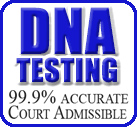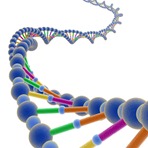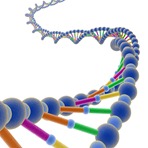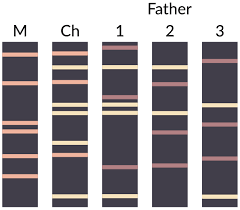Open on Evenings & Holidays! Extended And Flexible Hours!
* DNA Testing for Immigration
* Paternity Testing
* Prenatal Testing
* Deceased Paternity
* Forensic Testing & Much More!
Open on Evenings & Holidays! Extended And Flexible Hours!
* DNA Testing for Immigration
* Paternity Testing
* Prenatal Testing
* Deceased Paternity
* Forensic Testing & Much More!

AB DNA Testing Services
63-11 Queens Boulevard
Woodside NY 11377
Phone: 718-701-0292
Fax: 718-458-9700
Monday: 10:00 am – 8:00 pm
Tuesday: 10:00 am – 2:00 pm
Wednesday: 10:00 am – 8:00 pm
Thursday: 10:00 am – 2:00 pm
Friday: 10:00 am – 8:00 pm
Saturday: Closed
Sunday: Closed
* After Hours: Weekends by appointment only *
We offer New York’s BEST AND MOST AFFORDABLE DNA TESTING with a full range of services to verify family relationships.
We specialize in the following types of DNA tests:
• Paternity • Prenatal • Maternity • Grand-parenting • Sibling Relationship • Biological Relationship Studies • Twin Studies • Deceased Paternity • Forensic Testing • Child Identity Testing • Family Tree and Genealogy Testing
* EVEN LOWER PRICE THAN HOME DNA KITS.
* NO HIDDEN COSTS – Collection kits, photography, and fingerprinting all included.
* 99.9% (OR GREATER) ACCURACY.
* FINAL RESULTS ARE PRESENTED IN A NOTARIZED DOCUMENT IN A CLEAR AND CONCISE FORM.
* ALL RESULTS ARE COURT ADMISSIBLE.
* OVER 15 YEARS EXPERIENCE.
* NO REFERRALS NECESSARY!
* FAST AND PAINLESS SAMPLE COLLECTIONS, USING BUCCAL (Mouth) SWABS.
* SPANISH, PORTUGUESE, FRENCH AND CREOLE SPOKEN.
* PLEASE SEE TRANSLATIONS OF OUR SERVICES IN: SPANISH, BENGALI, URDU, CHINESE AND NEPALESE!
* OPEN SATURDAYS & Sundays!
Located In Woodside Queens, easily reachable from all boroughs (Queens, Manhattan, Brooklyn, Bronx and Staten Island), Westchester, Nassau and Suffolk. 4 Blocks from No. 7 Train (Flushing Line) and Long Island Railroad.
DNA TESTING AVAILABLE FOR BAHAMIAN CITIZENSHIP
ALL SAMPLES ARE COLLECTED IN THE BAHAMAS AND TESTED IN THE US AT AN ACCREDITED LABORATORY. CALL NOW.
Call us. We have found that in many cases, our personalized service can overturn your denial. We will call the passport office or immigration dept. for you and plead your case over phone verbally.
90% of time they will revoke your denial, as long as you get the required information to them quickly.
AB DNA TESTING SERVICES
63-11 Queens Boulevard
Woodside NY 11377
AB DNA Testing Services © |
 |
63-11 Queens Boulevard We are open on evenings & holidays! |
 |
AB DNA Testing Services © offers a full range of DNA testing services using the most highly qualified and Certified DNA testing laboratories in the country.
For New York residents, DNA testing has to be performed by a physician or legal entity (court, USCIS, US Embassy or Consulate).
AB DNA TESTING SERVICES © offers a “One-Stop Shopping” service since we have a doctor on the premises who will perform the test. We are open 7 days a week, including weekends.
Prenatal DNA Testing • Immigration DNA Testing • Paternity • Maternity • Grand-parenting • Sibling Relationships • Biological Relationships • Twin Studies • Deceased Paternity • Forensic Testing • Child Identity Testing • Family Tree and Genealogy Testing
Other doctors will charge a fee just for the office visit. We do not charge a fee for our on premises doctor visit. Save money and call for an appointment today!
AB DNA Testing Services ©
718-701-0292
DNA TESTING AVAILABLE FOR BAHAMIAN CITIZENSHIP
ALL SAMPLES ARE COLLECTED IN THE BAHAMAS AND TESTED IN THE US AT AN ACCREDITED LABORATORY. CALL NOW.
Deceased paternity testing is the testing of DNA from a deceased person in order to confirm the paternity of that alleged father to a child, either young or grown. Deceased paternity tests are actually quite common, as many people desire to establish legal paternity even after an alleged father has passed away. These tests are most often performed to establish a child as a legal heir to any assets of the alleged father, but we can perform deceased paternity tests for other reasons as well.
When we perform a traditional paternity test, we usually collect buccal cells, or cheek cells, from inside a person’s cheek using a cheek swab made of cotton. We take samples from both the child and the alleged father to be tested.
We then use these DNA samples to compare their genomes side-by-side. A person’s genome is all of their DNA put together and is unique from anyone else’s genome. However, when people are related, their genomes are more similar to each other than when they are not related. When we compare the genomes of multiple people, we are able to see how similar the genomes are. This comparison is called DNA profiling or Genetic Fingerprinting, and is the same process used in criminal investigations to see if someone’s fingerprint or hair matches the genome of the suspect.
Using buccal cells to perform a paternity test is traditionally how we do things in our lab. However, if the alleged father is deceased, performing a paternity test becomes more complicated.
When the alleged father is deceased, we look to non-standard methods of paternity DNA testing. In the absence of living buccal cells, you can bring in other samples of DNA from a deceased person such as blood, hair, or nail clippings, if possible. This is the preferred method for deceased paternity testing.
However, we recognize that gathering these DNA samples from a deceased person will not always be possible. If you are not able to provide any such DNA samples from the deceased person, the next best option is to test the DNA of a close relative to the alleged father. The closer the relative to the alleged father, the more accurate the test results will be.
An example of a close DNA relative of the alleged father is the alleged father’s biological parents. In this case, we prefer to test both of his parents, if possible, to increase the accuracy of the paternity test. However, testing only one of his parents can still be helpful.
If for some reason we are unable to test the DNA of the alleged father’s parents- for example, they themselves are deceased- then the DNA of another close relative can be used. But keep in mind that the accuracy of the paternity test will decrease the more distant the relative is from the alleged father.

After we perform the paternity test, you will receive a percentage result. This percentage represents the probability that the child and alleged father are related. If the probability is 0% then they are not related. If they are related, the probability may be as high as 99.99%.
Traditional paternity tests are extremely accurate. But deceased paternity tests can be less accurate if we are not using the alleged father’s DNA. The more distant the relative, the less accurate the test will be. Therefore, it is best to obtain DNA samples from the deceased father if at all possible.
Contact us today to schedule a paternity test appointment with the best DNA testing lab in NYC.
AABB DNA TESTING: 718-701-0292
References
https://en.wikipedia.org/wiki/DNA_paternity_testing
https://www.verywellfamily.com/about-paternity-tests-1270746
https://dnacenter.com/blog/are-home-paternity-tests-accurate/
https://dnapaternitytestingcenters.com/paternity-testing-with-father-deceased/
A DNA paternity test is the most widely known and most common of all relationship DNA testing.
Statistically, more than one million men in the United States have paternity tests every year. Of these million men, about one in three discovers that he is not, in fact, the biological father of the child in question.
Obviously, this could have devastating emotional effects and if the paternity testing was performed for financial reasons, the results can also have a tremendous impact.
Why is a DNA paternity test done?
Reasons for a Paternity DNA Test
There might be one of several reasons why someone would want or need to have a paternity test done. Here are a few of the most common reasons:
There are legal and non-legal DNA paternity tests.
Legal vs Non-Legal Paternity Tests
In cases where someone wants a paternity test just from a personal, private desire to know either whether or not they are the biological father of a child or a child who wants to know their parentage….a legal DNA paternity test isn’t necessary.
But, if there is money involved or in cases of immigration issues, it is advisable or even legally necessary to have a legal paternity test performed.
The major difference is that with a legal paternity test, there is a chain of custody that is observed through each step of the process. The parties must have verifiable identification and photographs are taken of each participant.
Still, even if you don’t need a legal paternity test, it is best to use a testing lab that uses the same techniques and standards for both legal and non-legal.